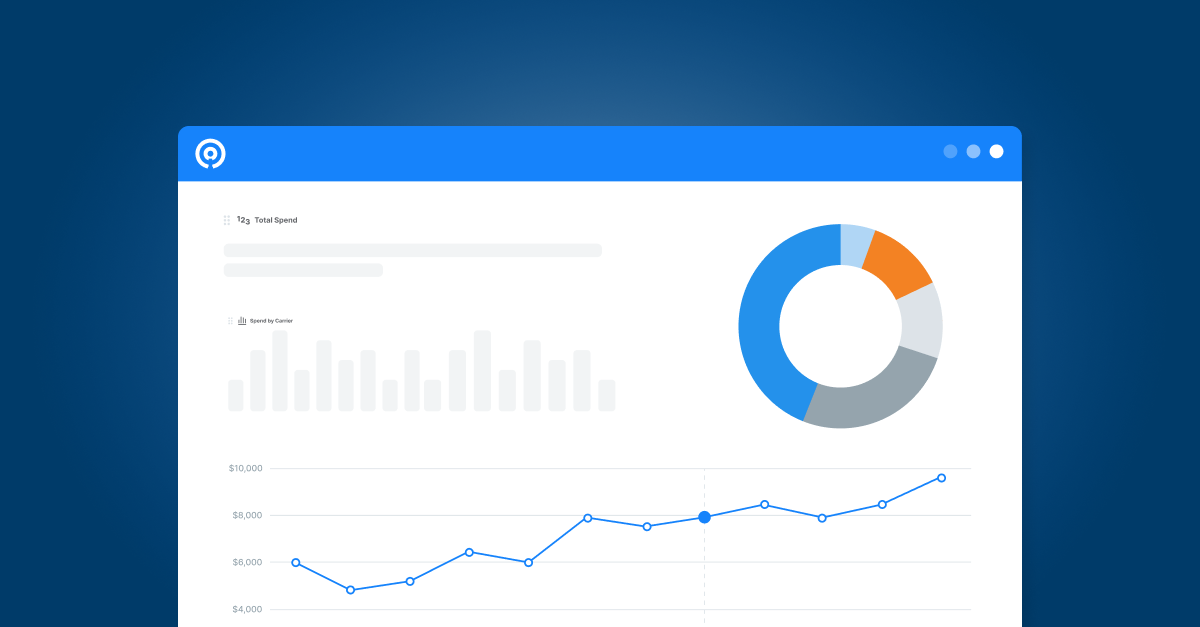Analytics in Transportation: Why Analyzing and Applying Data Drives Effective Supply Chain Decisions

Digital shipping automation and transportation analytics - these terms get thrown around a lot lately within the transportation industry. But what do they really mean, and how can they help improve performance within the supply chain? According to Gartner, "How to Take Advantage of Advanced Analytics in Transportation," Bart De Muynck, August 27, 2020, "Transportation leaders need to gather, analyze and apply data to drive effective supply chain decisions that in turn, will help manage costs. This is specifically true in transportation, where they are confronted with continuous variability, and enormous amounts of data are generated."
Understanding how analytics in transportation works and its impact is essential. It all works together to streamline key network processes.
Big Data Is Everywhere and Driving Interest in Analytics in Transportation Skyward
Data represents a powerful tool in this digital age. Data can be found everywhere, from data points relating to capacity and orders to delivery specs and payment histories. A critical part of analytics in transportation remains the practical use of this data. When applied correctly to network processes, services across the board get a much-needed boost.
Analyzing and Applying Data Opens the Door to More Strategic Carrier Sourcing
Analyzing and applying real-time data helps make the entire supply chain network useful. It also drives effective decision making and improves response time when disruptions occur. Being able to adapt and go with the flow ensures continued growth. It all helps improve payments and ROI within the supply chain.
Analytics Help Shippers Predict Future Rates and Better Plan RFP Processes
While no one can predict the future within the transportation market, data analysis can help shippers better prepare for annual or short-term RFP processes, says Adam Robinson via FreightWaves, "Shippers want a significant reduction in the stress of logistics. But what shippers want and what's available do not always align. With that in mind, the trucking RFP has come into play as a more significant undertaking for 2021 contracts as the freight market saw volatility in 2020 on the spot market due to historic tender rejections and volumes adding to increased prices. A confident, data-driven trucking RFP undertaking can make a big difference in freight spend." Analytics in transportation can help shed light on trends and cycles that may otherwise go unnoticed. It will also allow management to prepare earlier than usual, so they can deal with disruptions and deviations.
Useful Analytics Improves Customer Service Levels
Whether a supply chain works with a handful of regular clients or has many high-profile clients, customer service represents a critical aspect of network success. Automation and analytics in transportation help boost customer satisfaction. The ability to respond to real-time data cannot get overemphasized. Using data in a practical way improves overall business intelligence response.
Analytics HelpShippers Measure Carrier and Broker Performance
When working with team members within the network chain and 3PLs, performance tacking remains a key focus. Ensuring every link in the supply chain stays functioning optimally helps reduce waste and costs. That will help shippers manage their transportation service providers. And as reported by Supply Chain 24/7, "Supply chain technology – powered by data and analytics – are enabling a transportation management evolution. These powerful tools are helping businesses become more informed, efficient, and sustainable."Analytics and data monitoring can help managers detect performance issues and offer insight into addressing problems quickly.
Insight-Affording Tech Lends Itself to End-to-End SupplyChain Visibility
For analytics in transportation, end-to-end visibility remains critical. Both within the supply chain itself and third-party members and advisory teams, visibility reigns supreme. The ability to track, respond, and monitor shipments in real-time allows everyone involved to stay in the know. Utilizing technology and automation gives everyone a cutting-edge advantage.
Analytics Lessen the Work of Figuring out What to Do Next and How to Be More Strategic
Idle time means wasted resources within any system, and the same remains true for logistics managers and transportation supervisors. Analytics in transportation allows for more strategic planning by ensuring accurate and meaningful data stays available to everyone. It reduces time wasted playing phone and email tag multiple times each day.
Put the Power of Analytics inTransportation to Work in Your Organization by Partnering With Intelligent Audit
Analytics in transportation can have a considerable impact on shippers and carriers. Managers must make the most of this powerful tool. Analytics and data monitoring can help streamline processes throughout the supply chain. Analytics help everything from reducing dwell time to ensuring maximum capacity retention. Robust data and analytics influence it all. Connect with Intelligent Audit today to learn more.



